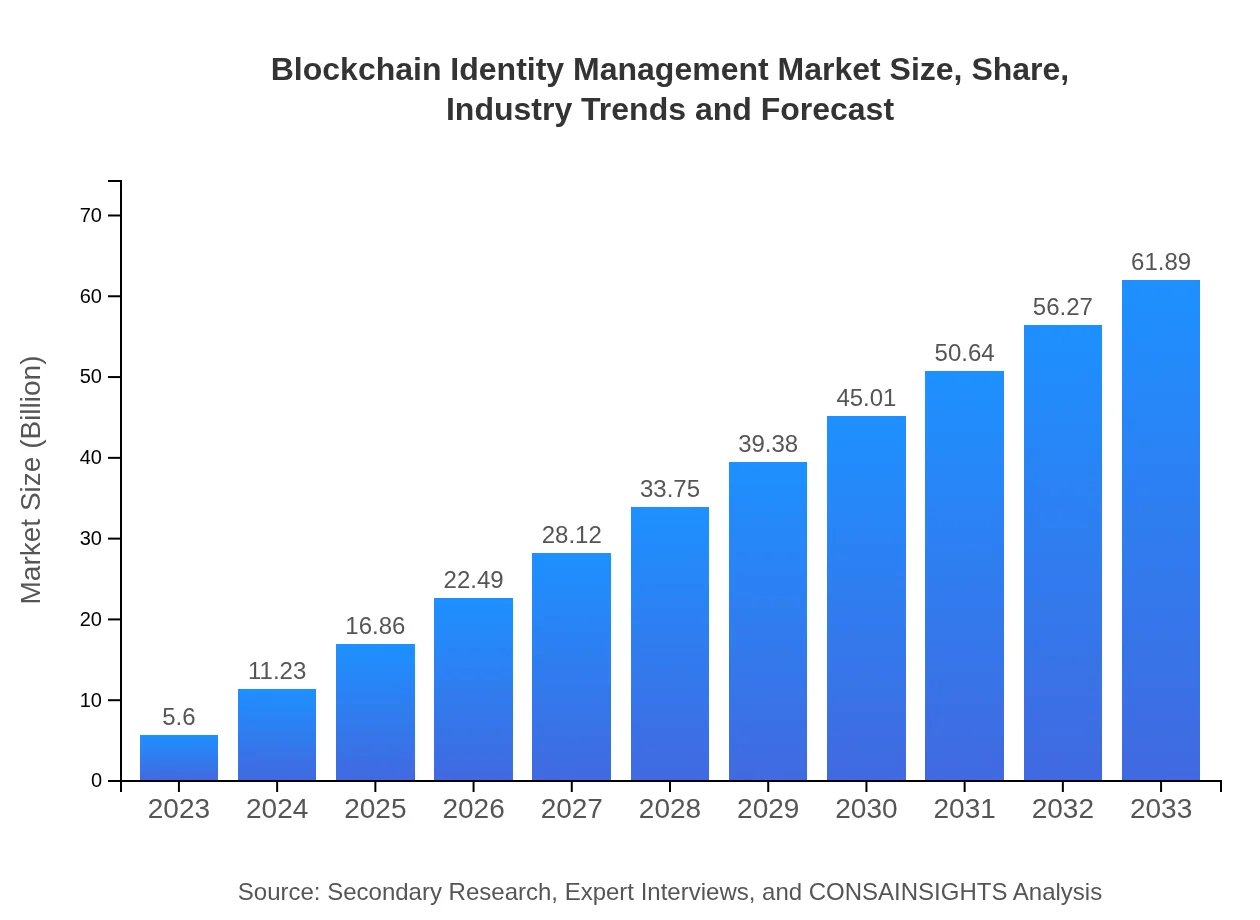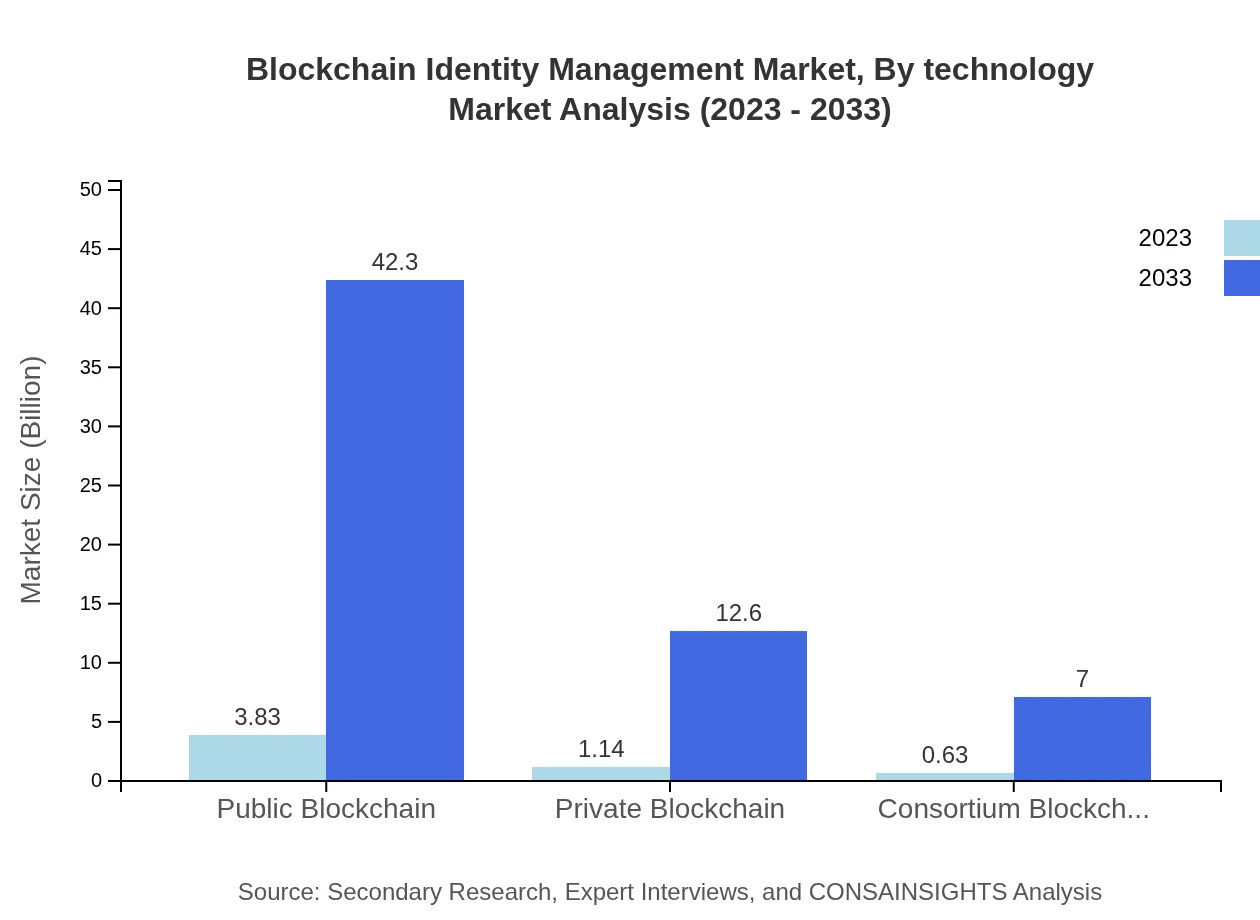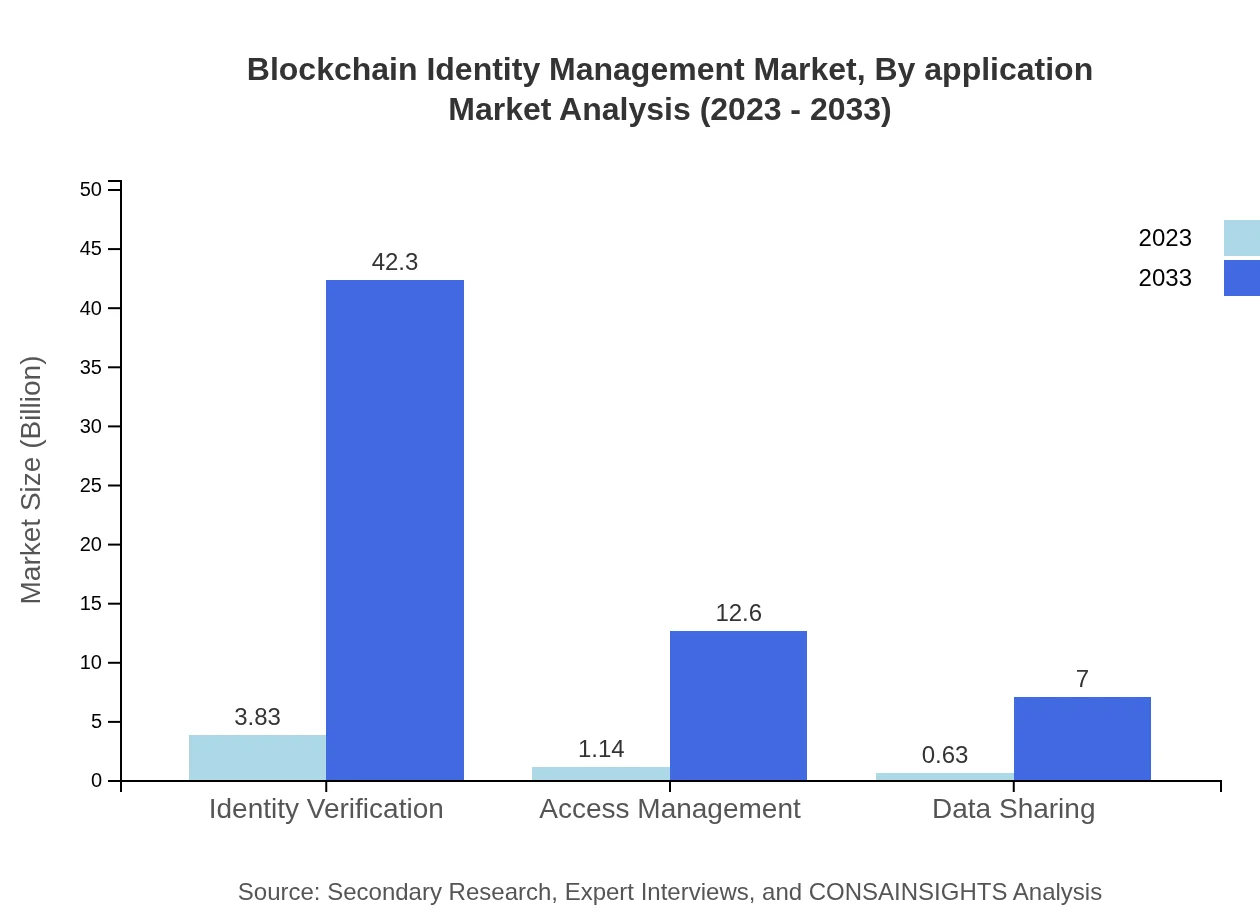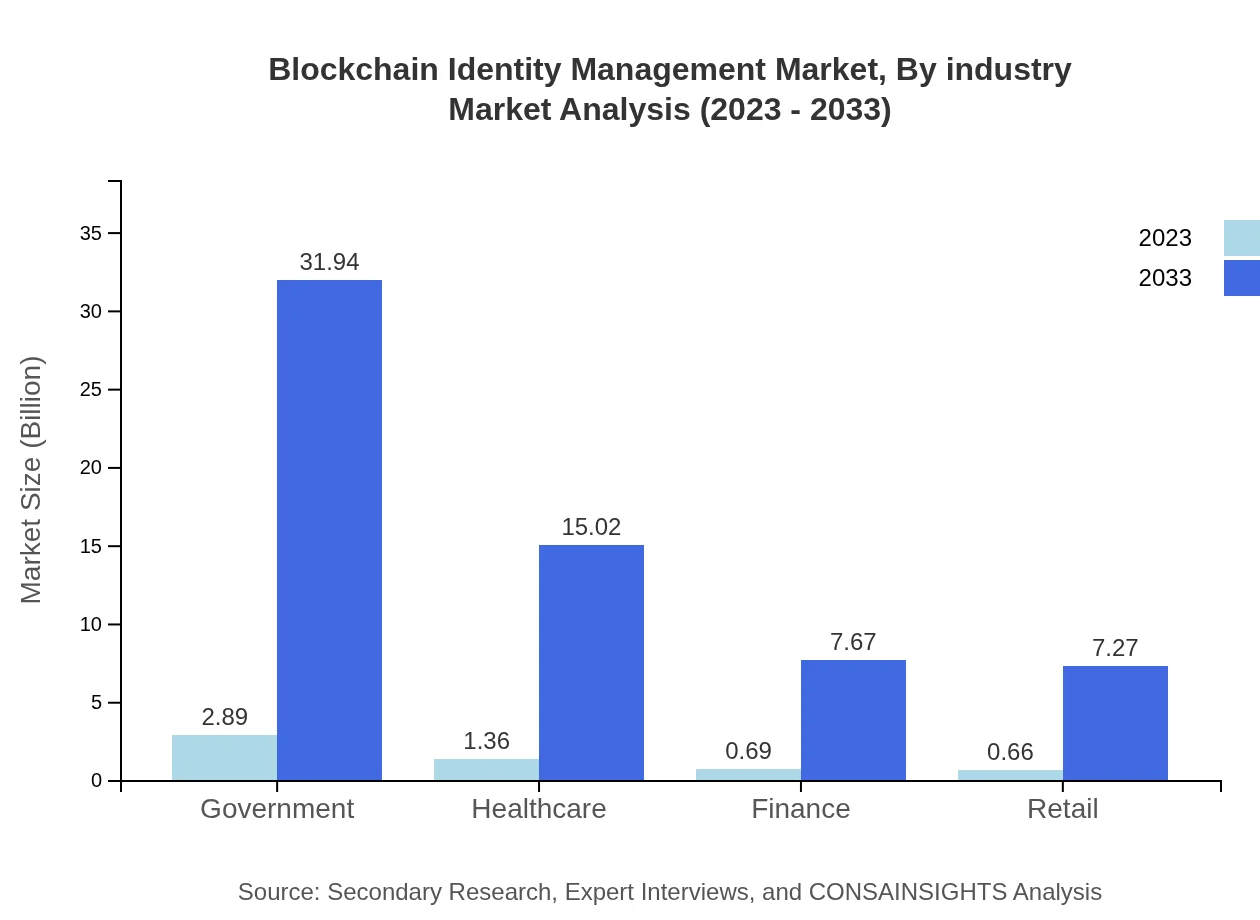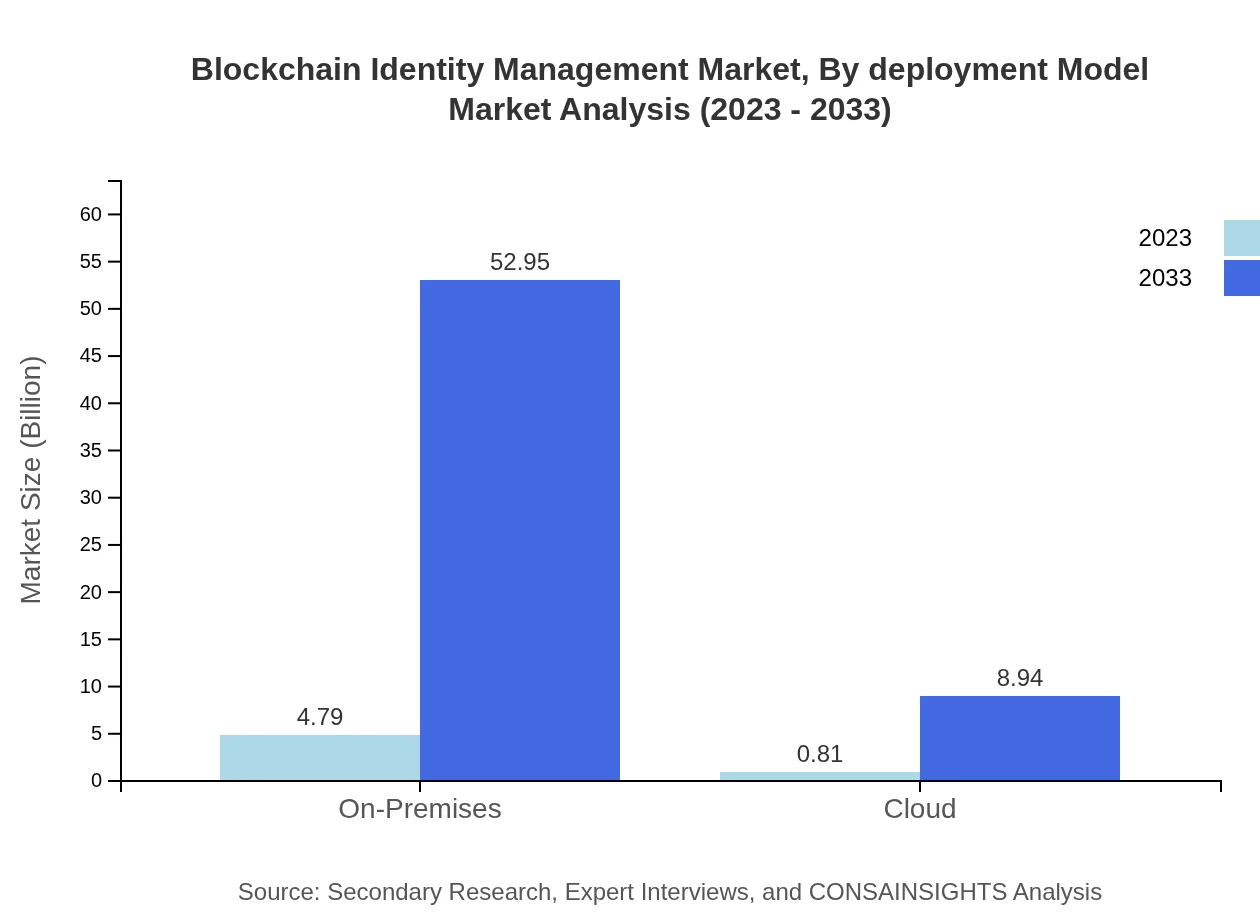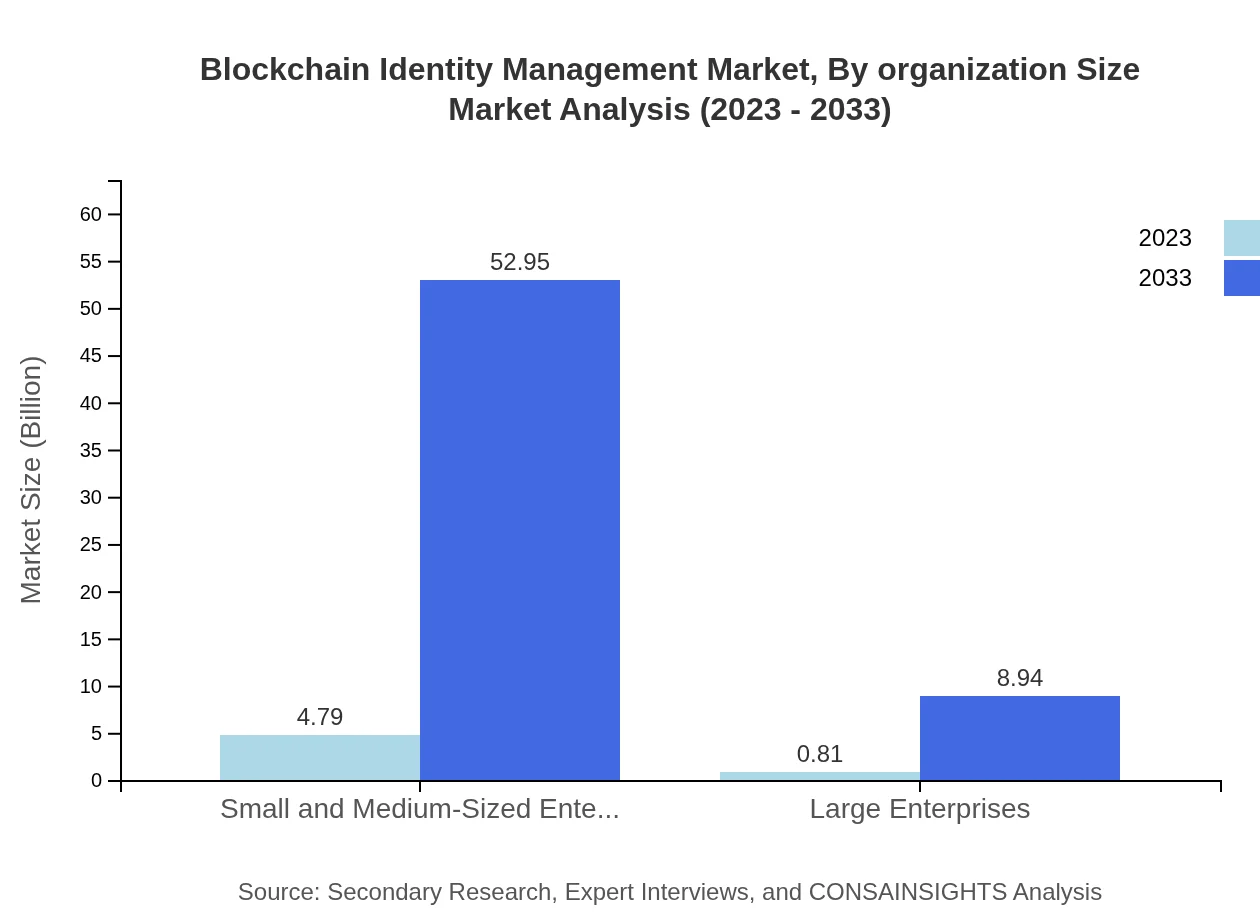Blockchain Identity Management Market Report
Published Date: 31 January 2026 | Report Code: blockchain-identity-management
Blockchain Identity Management Market Size, Share, Industry Trends and Forecast to 2033
This report provides an extensive analysis of the Blockchain Identity Management market, covering market size, growth projections, regional insights, and technological advancements from 2023 to 2033. It aims to offer stakeholders comprehensive insights for informed decision-making.
| Metric | Value |
|---|---|
| Study Period | 2023 - 2033 |
| 2023 Market Size | $5.60 Billion |
| CAGR (2023-2033) | 25.4% |
| 2033 Market Size | $61.89 Billion |
| Top Companies | IBM Corporation, Microsoft Corporation, Oracle Corporation, AWS (Amazon Web Services), Blockchain.com |
| Last Modified Date | 31 January 2026 |
Blockchain Identity Management Market Overview
Customize Blockchain Identity Management Market Report market research report
- ✔ Get in-depth analysis of Blockchain Identity Management market size, growth, and forecasts.
- ✔ Understand Blockchain Identity Management's regional dynamics and industry-specific trends.
- ✔ Identify potential applications, end-user demand, and growth segments in Blockchain Identity Management
What is the Market Size & CAGR of Blockchain Identity Management market in 2023?
Blockchain Identity Management Industry Analysis
Blockchain Identity Management Market Segmentation and Scope
Tell us your focus area and get a customized research report.
Blockchain Identity Management Market Analysis Report by Region
Europe Blockchain Identity Management Market Report:
The European market is also poised for rapid growth, increasing from USD 1.50 billion in 2023 to USD 16.56 billion by 2033. The stringent data protection regulations such as GDPR are propelling organizations to adopt blockchain identity management solutions.Asia Pacific Blockchain Identity Management Market Report:
In Asia Pacific, the market is expected to grow significantly from USD 1.14 billion in 2023 to USD 12.58 billion by 2033. High adoption rates in countries like China and India, coupled with enhanced digital infrastructure, are driving growth. Government initiatives promoting identity verification technologies are further boosting the market.North America Blockchain Identity Management Market Report:
North America holds a substantial market share, estimated at USD 2.11 billion in 2023, expanding to USD 23.36 billion by 2033. The region is a leader in adopting blockchain technologies, with major tech firms pioneering solutions in identity management, driven by rising cyber threats.South America Blockchain Identity Management Market Report:
The South American market is projected to grow from USD 0.32 billion in 2023 to USD 3.49 billion by 2033. Countries are increasingly investing in blockchain technologies to enhance security and reduce fraud, especially in financial services.Middle East & Africa Blockchain Identity Management Market Report:
In the Middle East and Africa, the market is expected to increase from USD 0.53 billion in 2023 to USD 5.90 billion by 2033. Governments in this region are actively exploring blockchain applications to enhance transparency and security in identity management.Tell us your focus area and get a customized research report.
Blockchain Identity Management Market Analysis By Technology
The market segmenting by technology shows significant distinctions. Public Blockchain holds a major share with an expected market size jumping from USD 3.83 billion in 2023 to USD 42.30 billion by 2033, demonstrating a strong appeal for its transparency features. Private Blockchain, expected to grow from USD 1.14 billion to USD 12.60 billion, appeals to organizations needing enhanced privacy. Consortium Blockchain remains smaller but is growing from USD 0.63 billion to USD 7.00 billion as collaborative identity solutions gain traction.
Blockchain Identity Management Market Analysis By Application
Identity Verification dominates the application segment, projected to rise from USD 3.83 billion in 2023 to USD 42.30 billion by 2033, reflecting the importance of secure user identity operations across industries. Access Management and Data Sharing also exhibit significant growth potential, forecasted to reach USD 12.60 billion and USD 7.00 billion respectively by 2033.
Blockchain Identity Management Market Analysis By Industry
The Government sector is the largest contributor to the industry, expected to grow from USD 2.89 billion in 2023 to USD 31.94 billion by 2033. The Healthcare industry also shows robust growth from USD 1.36 billion to USD 15.02 billion as secure patient data management becomes essential. The Finance sector expects growth from USD 0.69 billion to USD 7.67 billion, and Retail is anticipated to follow a similar trend.
Blockchain Identity Management Market Analysis By Deployment Model
The market is largely driven by On-Premises solutions, expected to expand from USD 4.79 billion in 2023 to USD 52.95 billion by 2033, attributed to stringent IT security requirements. Cloud solutions, while smaller, are projected to grow significantly, reaching USD 8.94 billion by 2033 as more companies adopt flexible, scalable identities management systems.
Blockchain Identity Management Market Analysis By Organization Size
Small and Medium-Sized Enterprises (SMEs) are expected to dominate the market, moving from USD 4.79 billion in 2023 to USD 52.95 billion by 2033 due to more accessible solutions. In contrast, Large Enterprises will also grow, albeit at a slower pace, reaching USD 8.94 billion by the end of the forecast period.
Blockchain Identity Management Market Trends and Future Forecast
Tell us your focus area and get a customized research report.
Global Market Leaders and Top Companies in Blockchain Identity Management Industry
IBM Corporation:
IBM provides an extensive suite of blockchain-based identity management solutions that enhance operational efficiency and security for both enterprises and government agencies.Microsoft Corporation:
Microsoft offers Azure Blockchain Service, enabling enterprises to develop and manage blockchain solutions with robust identity management features to ensure secure user authentication.Oracle Corporation:
Oracle's blockchain services facilitate trusted identity management solutions custom-built for data security, offering a framework essential for digital transactions.AWS (Amazon Web Services):
AWS provides various blockchain services supporting identity management, empowering companies to enhance security and build decentralized applications.Blockchain.com:
A leading provider of cryptocurrency blockchain resources, including identity management solutions focusing on traceable and transparent identity verification.We're grateful to work with incredible clients.









FAQs
What is the market size of blockchain identity management?
The blockchain identity management market is valued at approximately $5.6 billion in 2023 and is projected to grow at a CAGR of 25.4%, reaching substantial market size by 2033.
What are the key market players or companies in the blockchain identity management industry?
Key players in the blockchain identity management industry include IBM, Microsoft, Oracle, and other tech businesses pioneering blockchain solutions for identity verification and management.
What are the primary factors driving the growth in blockchain identity management industry?
The growth of blockchain identity management is primarily driven by increasing cybersecurity threats, demand for transparent identity verification, and the need for efficient access management solutions across various sectors.
Which region is the fastest Growing in blockchain identity management?
North America is the fastest-growing region, with its market value projected to rise from $2.11 billion in 2023 to $23.36 billion by 2033, reflecting robust adoption in technology.
Does Consainsights provide customized market report data for the blockchain identity management industry?
Yes, Consainsights offers customized market report data tailored to specific needs within the blockchain identity management sector, allowing for a focused analysis of market trends and insights.
What deliverables can I expect from this blockchain identity management market research project?
Deliverables from the market research project include analytical reports, market forecasts, competitive landscape analysis, and a detailed overview of market segments and regional insights.
What are the market trends of blockchain identity management?
Market trends in blockchain identity management indicate a growing emphasis on public blockchain implementations, regulatory compliance, and integration of advanced technologies like AI for enhanced identity verification.

